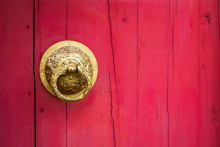The first issue of the Campus Magazine contained an interview with Detlef Lohse. Lohse, a prominent researcher at the UT, mentions he values honesty and dreads the rise of populism and alternative facts, and points at usual suspect Donald Trump. This line of thought is not especially groundbreaking – it isn’t at all – but it articulates what the scientific community as a whole values. It is at the same time exactly these values that are being undermined by widespread collaborations between the UT and other Dutch institutes with China.
China, the land from which a river of never-ending horrifying news rises. Organ harvesting from detainees, intellectual property theft by state actors, concentration camps for minority groups in which rape, torture, and forced abortion are a matter of course. China, the land where there is no such thing as ‘alternative facts’. There is only one kind of ‘fact’ in the People’s Republic, and that is the voice of the Communist Party.
Nonetheless, collaborating remains to be the prevailing standard. Possibly the most striking (and embarrassing) incident was the attempt of the University of Groningen to start up a branch campus in Yantai. Perhaps inspired by this venture, the UT’s board (amongst which Thom Palstra, former professor at the University of Groningen) initiated close collaborations with a few Chinese universities, further supporting a network of UT professors who hold a part-time professorship in China.
Collaborations with universities from emerging countries is appreciable, and can stimulate emancipation of the people. However, China has continuously proven itself to be obdurate, and uses its technological advancement to build a surveillance state which further supports large-scale human rights violations. Current endeavors between the UT and Chinese governmental parties seem to be merely based on increasing revenue and reputation. Active stimulation of collaborations by the UT’s board is the exponent of this opportunistic mindset, in which honesty and integrity are apparently less important when fame and money is to be earned.
The world doesn’t need university boards which stimulate scientists to go over the edge of what is ethically acceptable. The world needs scientists to follow up on their duty to critically examine the societal impact of their actions. Researchers in the natural sciences are not exempt from this responsibility, as demonstrated in the past by several prominent scientists who stood up against institutional injustice (Einstein, Schrödinger, Von Laue). It is about time that contemporary scientists follow these examples and stand up against the brutalities of the Chinese government.








